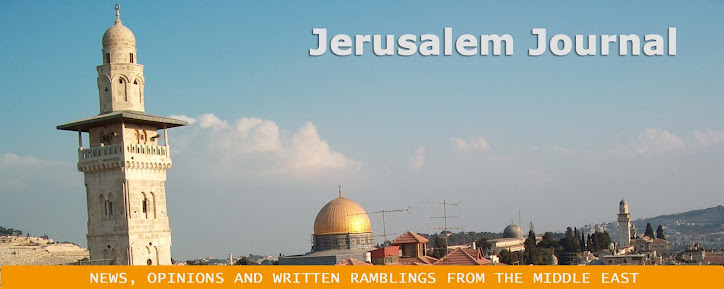Okay, so it isn't just me who experiences new depths of road rage and utter shock on Israeli roads. I've often wondered if there is a correlation between erratic driving and Israel's constant fight for existence. Emma Shevah, writing in the Independent Minds, describes perfectly the situation on the roads and even a link to terrorism in a column. Here are some highlights or read the entire article here. I've always wanted to write about Israeli drivers, but Emma captures the roadway experience/nightmare to a tee. I'll highlight some of the lines that elicited verbal responses:
Israelis are notorious drivers. There's something to be said about the collective character of a nation and the way those attributes are transferred into driving habits. If you think Israelis are rude, impatient, arrogant, tetchy and care only about their own progress in life (and I guarantee you won't be the only one), you should witness the way they drive. ...Ugh. I'm frustrated just reading about it!
The art of queuing has yet to grace these shores: in public toilets or to get on buses, it's a question of push right on in regardless of who may have been before you or how old and weak they are. On the roads it's no different: imagine a junction with a slip road to the right, a stream of cars lining up for two hundred yards to take it, driving slowly, in lane. Then imagine a car sailing past the entire line and ramming in between two cars at the front. Cheeky bastard, right? Now imagine lots of cars doing it, one after the other in a constant effrontery to the done thing. You feel foolish, a sucker, nudging forward politely like that, driving pettily close to the car in front so they can't ram in front of you as you get closer to the turning, but they do, and they'd go into you unless you braked.
There are no grid boxes at junctions so even when there is no forward access, drivers care about nothing other than their own progress through the lights, so they block the entire junction and haughtily ignore the furious beeps of the drivers who can't get past.
The way to get someone out of the fast lane on a motorway is to drive right up to their bumper at 120km an hour and flash your lights, and if they don't move, overtake on the inside and zigzag in and out of the other lanes, in between cars that are too close to each other already, missing them by millimeters. Last week I crossed a set of lights in town only to see a car in front of me, in my (single) lane, reversing. He reversed all the way down the hill backwards, on the wrong side of the road, with me following him open-mouthed. One house near the kids' school has an unfortunate driveway: in order to get out they have to reverse onto a busy roundabout, and I've seen them do it without the slightest hint of caution. I've seen a policeman driving whilst speaking on his mobile phone when a civilian would be fined 1000 shekels for the same crime. I had a police van (not in emergency mode) drive right up behind me, flashing me to move over, but I couldn't change lanes as a car was parallel to me, so the only thing I could do was drive above the speed limit , overtake the other car, and let the police van pass. Forced over the speed limit by the police! I could go on and on and on. Sometimes it's laughable but in reality, driving here is not a pleasant experience - it's fraught with tension and aggression, and worst of all, it makes you drive like a cheeky bastard too.
A recent study by PNAS (Proceedings of the National Academy of Sciences of the USA) showed that terror attacks influenced driving behaviour in Israel: following a terror attack there was a 'temporary lull in light accidents followed by a 35% spike in fatal accidents on Israeli roads 3 days after the attack'. The results were based on analyses of road accidents and terror attacks between January 2001 and June 2002, when the intifada was taking place, and whereas previous studies had focused on subjective reports of post-traumatic stress, the report concluded that there was a "population level behavioural response to violent terror attacks".
I have no doubt that the stress of living in this country - not only in relation to terror attacks but the general stresses of not earning enough money for a decent day's work (The Jerusalem Post recently reported that 49% of Israelis don't earn enough to cover the basic monthly expenses); of the persistent threat of survival as a nation state and as individuals on the dangerous streets; of living in a boiling pot of political, religious and economic tensions, and other factors, like the heat of the summer and diabolical road surfaces, all contribute to the atrocious driving habits and exceptionally high accident rates. But also, to a significant extent, the problems on the roads have to do with a basic lack of consideration for other drivers, an absence of civility and manners (I sound like my mother) and driving recklessly and illegally because you bloody well feel like it and who the hell are you anyway? Unlike some of the factors involved, those minor details are things that every single driver on Israeli roads could do something to improve on a daily basis.


